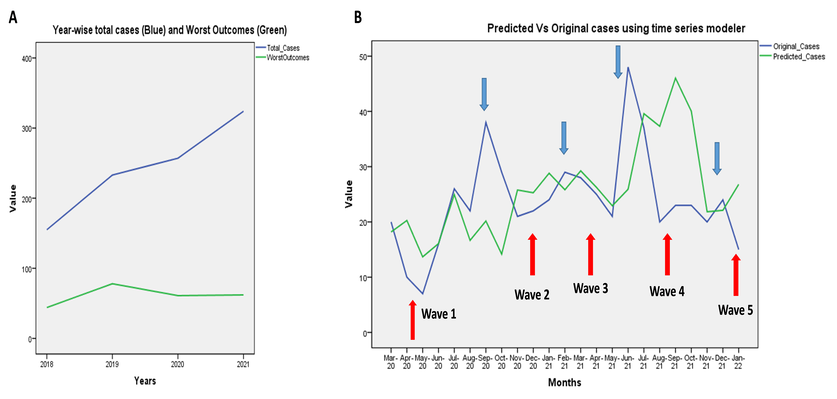Abstract
Background:
The COVID-19 has badly affected the existing health infrastructure in developing countries like Pakistan including Multi Drug-resistant Tuberculosis (MDR-TB). Here we have studied the burden of MDR-TB during the COVID-19 pandemic.
Methods:
This comparative cross-sectional study was conducted at Lady Reading Hospital, Peshawar from January 2018 to March 2022, comparing pre and post pandemic statistics for MDR-TB. Forecasting analysis was performed to assess the impact of COVID-19 waves on MDR-TB using SPSS version 25.
Results:
Of 984 patients, 37% (n=362) were more than 40 years of age while 63% (n=622) were 40 years or less. Females constituted 54% (n=530) of the study population. The overall mortality of MDR-TB was 13.8% (n=136). During wave 1 of COVID-19, 56 new MDR-TB cases were registered as compared to 86 during the same period in 2019 showing a 34.9% decrease. Forecasting analysis showed that the original cases were lower than predicted cases during each wave of COVID-19, sparing the gap periods.
Conclusion:
Though Pakistan has successfully managed MDR-TB during the COVID-19 pandemic, its early phases have badly affected the new registrations of MDR-TB cases. A robust health policy that prioritizes MDR-TB prevention and treatment, and considers the impact of epidemics like COVID-19, is crucial for achieving Sustainable Development Goals by 2030.